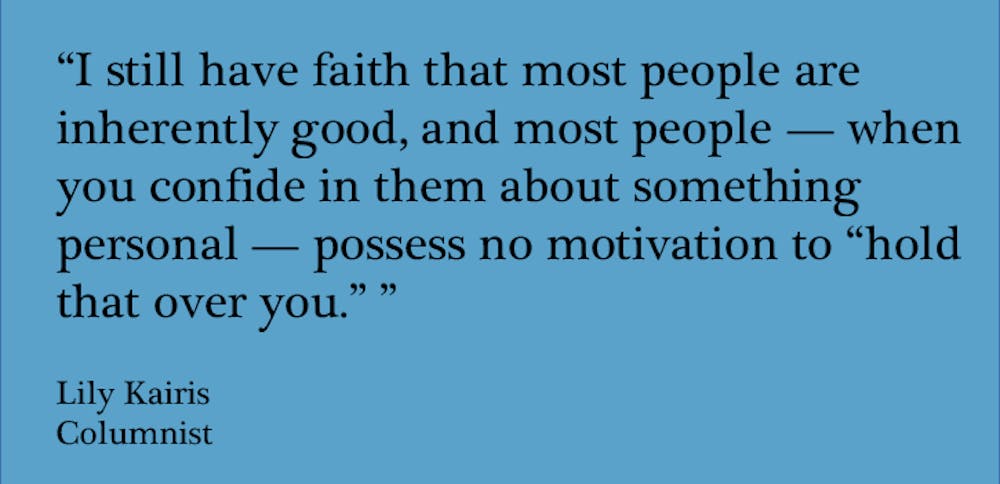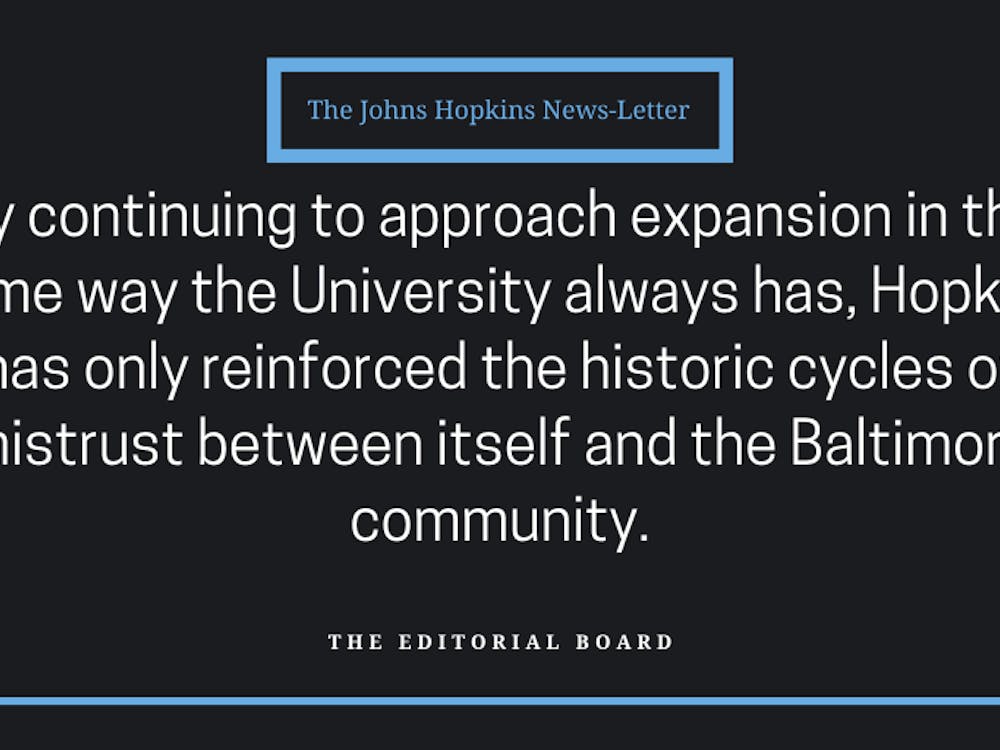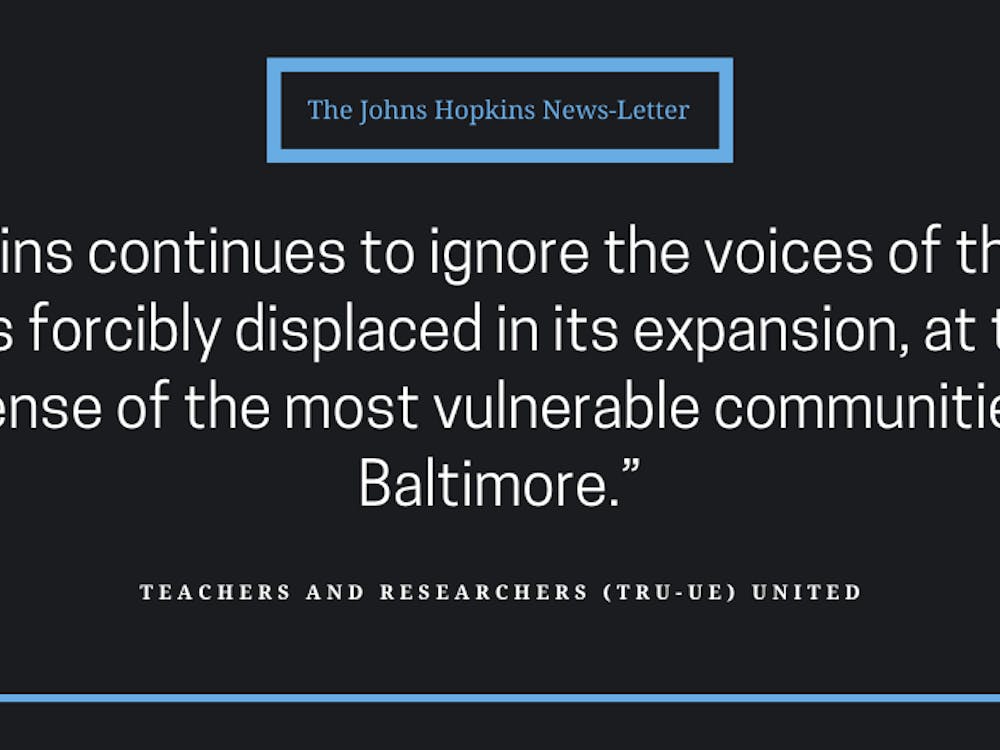
I’ve been thinking a lot, recently, about what it means to be “authentic.” As evident in my writing this column, I am a sharer by nature.
However, while writing and sharing has always brought me joy, there are also risks involved with my openness. For one, my mom says I trust people too easily. This is partially symptomatic of her (nearly irrational) overprotectiveness and partially due to her many years of watching me get hurt.
She’s not wrong. In my childhood, I developed a masochistic habit of placing my adoration and support in the wrong people, only to be manipulated, abandoned or verbally abused later down the line.
These days, whenever I tell my mom about my friendships, she will repeat her favorite words of wisdom: “Be careful with what you disclose, Lily. You never know how people might hold that information over you.”
Even after all these years of disillusionment, I would like to believe my mom is wrong. I still have faith that most people are inherently good, and most people — when you confide in them about something personal — possess no motivation to “hold that over you.” Instead, they feel flattered. They feel trusted. The bond you share is strengthened. I think true intimacy (whether with a lover or a friend) cannot form unless each person takes the risk of disclosure. Vulnerability is frightening, and it opens up the opportunity for heartbreak, but it also opens up space in your heart for real connection. In the end, for me, human connection is the most fulfilling thing that life has to offer.
All sentimentality aside, there’s another risk I’ve been thinking about with regard to my openness. What happens when the vulnerability is one sided?
I’m thinking specifically about public disclosure: essays, blogs, poems and, yes, even News-Letter articles. When you read a piece of writing littered with personal details about the author, it is difficult not to feel like you know them. You spend a few minutes basking in that person’s consciousness — reading about their love life or their future goals or their relationship with their father — and suddenly, it feels as if you’ve made a friend. You know the entire life story of this mysterious author, but they know nothing about you. Of course, in the context of this example, I am thinking about myself.
This thought actually came to mind quite recently, when readers of my personal blog started asking me on dates. I know: Reading that aloud, it sounds like the plot of a Disney Channel Original Movie. I promise, however, that this is real life. It only happened a handful of times. In the past six months, a few people I vaguely know at Hopkins and a few Tinder boys who found my blog through creative Facebook searches sent me messages along the lines of: “Hey. I appreciate you and your writing. Want to go on a date?” Each time, my ego having been sufficiently boosted, I went on (at least) a first date with them — some awkward, some decent and one (surprisingly) exceptional.
In the case of the recent exceptional date, I was extremely surprised. To be honest, I am not a huge first date fan, especially in the case of these quasi-fan solicitations. I find the conversations often stilted and the pressures too high, as if this person has built up a glorified image of me based off my writing. That image can never live up to reality. In my articles and blog entries, people only get a tiny, well-edited peek into my life. Yet, in person, I am no Shakespeare. I do not speak as musically as I write, and my day-to-day existence is not as invigorating as a single, snappy article might suggest.
It’s strange — I never thought I would face this predicament of being put on a pedestal in someone’s mind. I feel pretentious even writing it: The problem seems reserved to successful musicians and celebrities. However, when I went on my most recent date (the good one), the guy voiced a thought that stuck with me: “No matter how close you are with someone, their view of you is never quite reality.” He went on to describe how he considers everyone he has ever met “a character in the story of his life.” Although this sounds narcissistic, I couldn’t help but agree.
Maybe this stems from my long-held artistic disposition, but I honestly see my life as a narrative. I am the protagonist, slowly fumbling through my hero’s journey to fulfillment, and everyone around me serves as supporting characters. From the stranger at church who randomly gave me $50 when I was six to my college best friends to my deceased great grandmother, everyone holds some value in my life’s narrative. Accurately or otherwise, I have delicately crafted an image of each person in my brain.
I guess, then, this leads me to a conclusion: Though it feels odd to imagine, all the people around me (from my best friends to my Tinder dates) are creating images of me too.























Please note All comments are eligible for publication in The News-Letter.